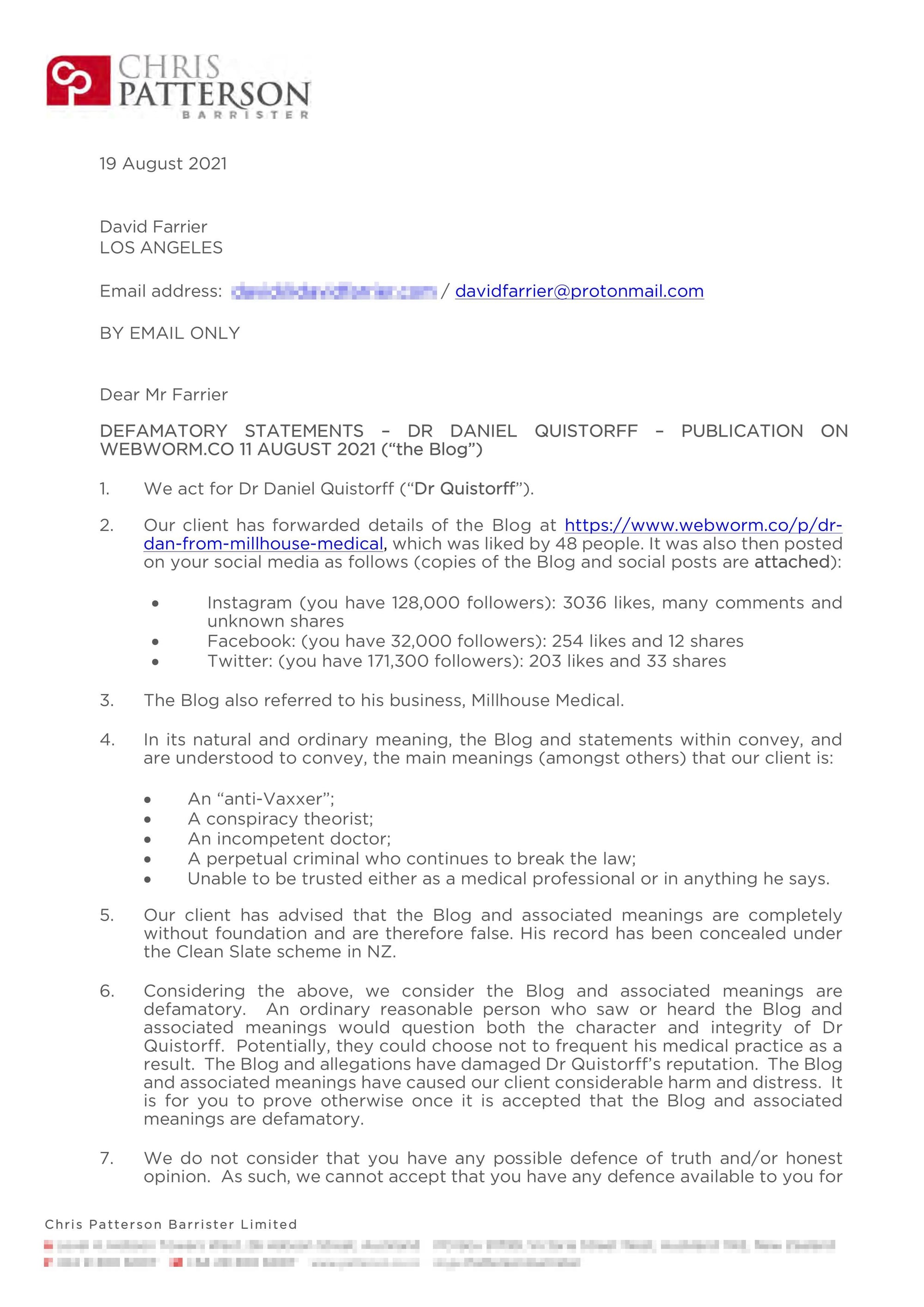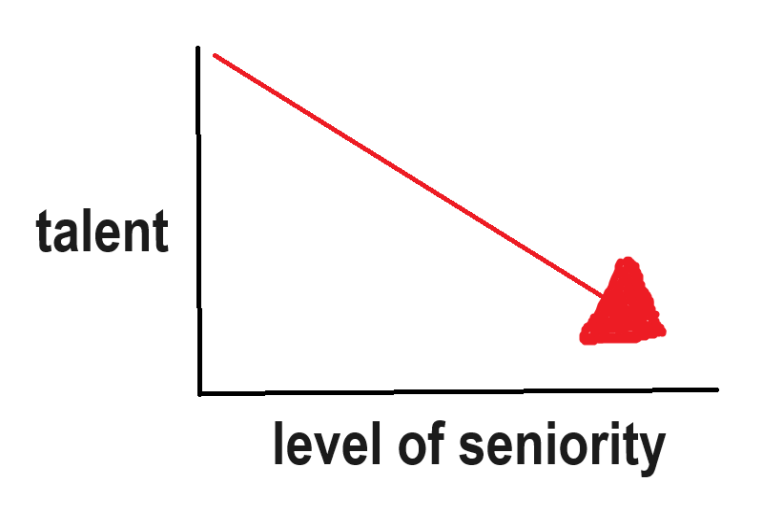Why Are Bosses Nearly All Buffoons?
On the incompetence of the executive class.

Note: As a paid-up Webworm member, I’ve recorded this Webworm as a mini-podcast for you as well. Some of you said you liked this option - so I aim to provide it when I get a chance to record!
Hi,
A cool thing happened over the weekend — Jason Pargin (a really great author who wrote John Dies at the End under the pen name David Wong) did a really fun review of Tickled over on his TikTok.
He has about half a million followers, so it’s a fun way for a new audience to find the film. Maybe I will finally make my millions (I think it’s free on Plex and a bunch of other places so my plan is off to a bad start).
It’s the perfect way to review a movie — he gives very little away, which makes people actually want to watch it. When Tickled came out in 2016 most of the reviews were just people typing out the plot.
For anyone new to the world of Tickled, the 20-minute followup we did for HBO — The Tickle King — is on YouTube (or on the blu-ray/dvd, and on AppleTV/iTunes), plus I’ve written a bunch of stuff on Webworm about stuff we didn’t explore in the movie:




Okay — that’s enough tickling for one day.
A Twitter account called Diabolical Spuds had a very good rant on Twitter last week. It was about Boeing, a company I’d also ranted about:
“The stuff going on with Boeing has been happening in every industry for a long time. All of the skilled individuals who actually do the job are understaffed and overworked while the administrative class of MBA vampires with email and PowerPoint jobs continues to grow.
Boeing used to be run by engineers. Hospitals used to be run by doctors. Universities used to be run by professors. There is a bloated corporate class sucking the lifeblood out of every institution in this country.
Corporate leadership are constantly incentivized to cut costs and they sure as fuck aren’t going to do it from executive compensation. They aren’t gonna fire the 12 vice presidents who were in their frat and do about eight hours of actual “work” a week.
I have to say I agree, and it ties in perfectly with an essay I wanted to share from Webworm regular Hayden Donnell.

At this point I’ve known Hayden for more years than I haven’t. I’m not entirely sure if that’s a blessing or a curse; a sign of something wonderful, or a shining example of the sunk cost fallacy.
One thing I do know is that he has good ideas, and is a good writer. And he has something to say about your boss.
David.
The Bosses Are Nearly All Buffoons
by Hayden Donnell.
A few months before The Messenger shut down, some of its reporters sat on a Zoom call staring up chief executive Jimmy Finkelstein’s nostrils as he called out for an unseen person to bring him “coffee and a cookie”.

The reporters were worried the site was going bankrupt. Finkelstein had recently sold the laptops they used to make quick cash. He’d been overheard asking for Vivek Ramaswamy’s number while searching for sources of fundraising dollars.
In a piece for Variety describing the interaction, the former political reporter Amie Parnes says Finkelstein didn’t take his staff’s concerns kindly. He told them he was “88-and-a-half percent sure” the site would make it through to the 2024 presidential election, adding “I’ve never failed.”
He failed.
The Messenger shut down a few weeks ago. Its 300 employees found out they had lost their jobs via email, or in some cases, because they’d already been booted off Slack. Finkelstein had managed to blow through a $50 million budget in less than a year, thanks to a boneheaded business strategy and a selling proposition perfectly unsuited to the internet age.
In having almost no idea how to run a functioning news business, Finkelstein stands in a proud tradition of news executives the world over.
Much has been written about the structural factors accelerating the media’s demise. Tech giants have hoovered up its ad revenue like the sandworms from Dune. Its audiences have migrated to TikTok, or worse, X, where they routinely mistake the deranged inner monologue of @MAGAJackie28743781 for objective journalism.
Less has been written about the incompetence of the media’s executives. Vice was home to some of the world’s most principled and talented journalists, but it was also run by cartoonish charlatans who blew half the op-ex on jobs for their friends, cocaine and general horndoggery.

Mostly though, media bosses have demonstrated more mundane strategic ineptitude.
They responded to the looming threat of the internet by making their product free and spending 10 years destroying their brands for clicks. When that didn’t work, they pivoted to telling people the hollowed out sites they’d splattered with content slop were premium products worth paying for.
This sort of bumbling is neither uncommon nor unique to the media. Anyone who’s ever worked for a corporation will recognise the inverse relationship between seniority and competence.

Just recently, the chief executive of New Zealand rugby franchise the Hurricanes admonished its women’s team the Poua for performing what he saw as a divisive haka. He didn’t think to actually talk to anyone on the team before levelling his criticism in the media. If he had, they might have told him that being confrontational is kind of the point of a haka, and trying to make an inherently political product conform to his insipid risk-averse corporate slogans is misguided.
There’s some research underpinning the idea that senior managers have at least a little bit of loose wiring. Chief executives are famously four times more likely than the general population to be psychopaths. But most people don’t come into contact with chief executives; they’re afflicted day-to-day by managers who grade out somewhere between mediocre and clinically braindead.
There are an array of suspects for the terrible manager phenomenon. Fast Company, a publication aimed at people who spend a lot of time liking posts from thinkfluencers, says it’s because we don’t train them enough in people management.
I suspect it’s because corporate structures reward a disproportionate amount of mediocre people for the important skill of not talking back to their managers. Those managers, having already been through this process, are also likely too mediocre to identify the fact that the person they’re promoting is mediocre.
Webworm’s in-house psychotherapist Paul Wilson (who will be answering questions in the comments) says there’s some merit to the idea that companies tend to promote people for their skill at “climbing the greasy pole” rather than their ability or strategic nous. “There’s a quite probably spurious saying that goes ‘those who can't do, teach’. Well, that could be rewritten as ‘those that can’t do, manage’,” he says. “If you realise you’re not as good as the product side of the business, focusing on the management side of the business is a relatively clever play.”
In some ways that’s a good thing. Nobody wants a loudmouth, know-it-all Webworm columnist as a boss. But the downside is that skill at ascending through an organisational chart doesn’t necessarily translate to big picture thinking or astute decision-making.
Most of the time that’s survivable. Businesses muddle through. But when a crisis arises, it can add to the trauma. “Bosses are often very internally focused on their status in the organisation. That doesn’t mean they’re great at surveying the horizon and seeing what’s coming next,” says Wilson. “And when the waves come you hope the people atop the greasy pole are good at navigating the surf.”
Finkelstein begged Amie Parnes to take a job at The Messenger. His voice cracked when she finally said yes. When it shut down without warning, she was left with no income, no health insurance, and a child to take care of.
At The Messenger, as at Vice, Quibi, or any number of other businesses, the managers were good at talking a big game. But when the waves came in, they just steered straight into the rocks.
Most of them were too proud to even shout ‘abandon ship’.
David here again.
I apologise to any Webworm readers who are day-to-day managers, who Hayden referred to as “mediocre” and “clinically braindead.”
I hope “great sense of humour” is also included.
I’m curious what you make of this. It mostly rings true for me — I remember a man called Mark Weldon who came in to fix my old newsroom about a decade ago, and I don’t think I’ve ever seen a man make so many knuckle-headed decisions.
David.





